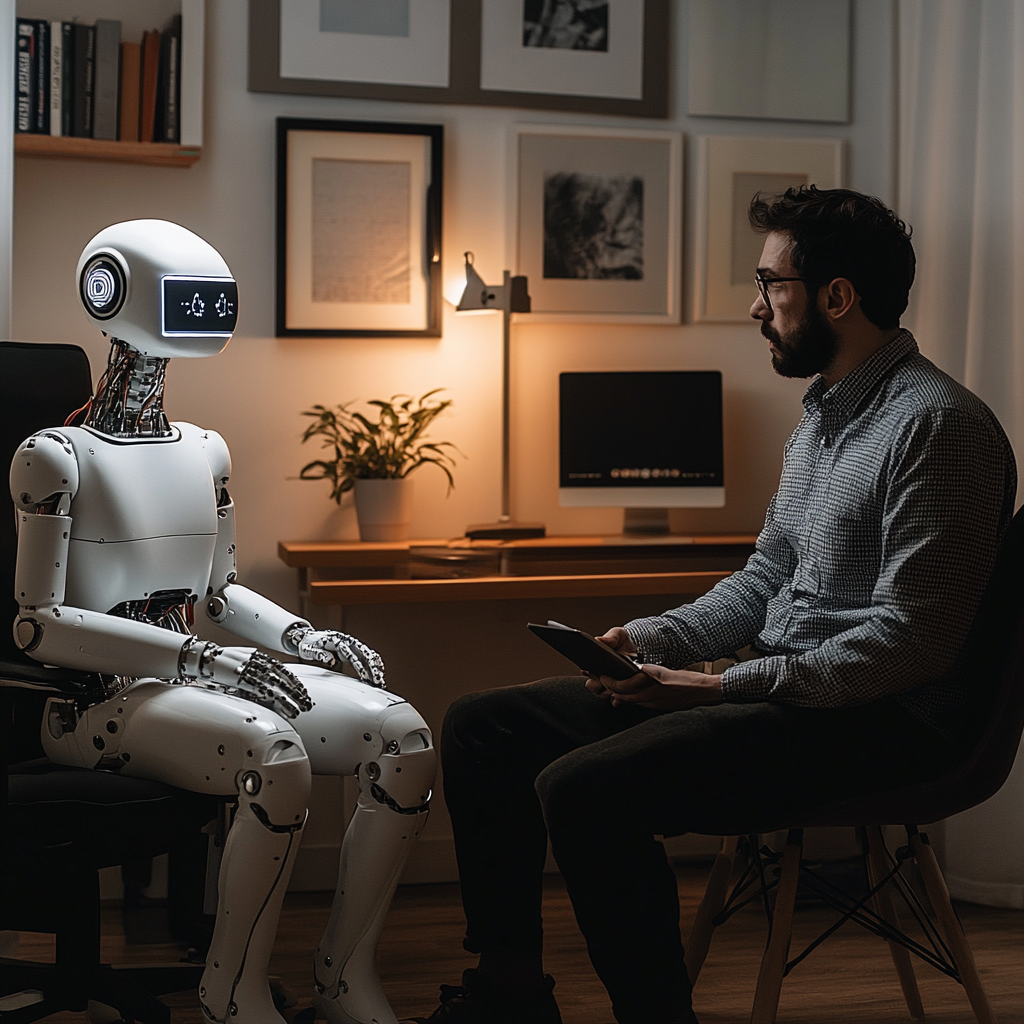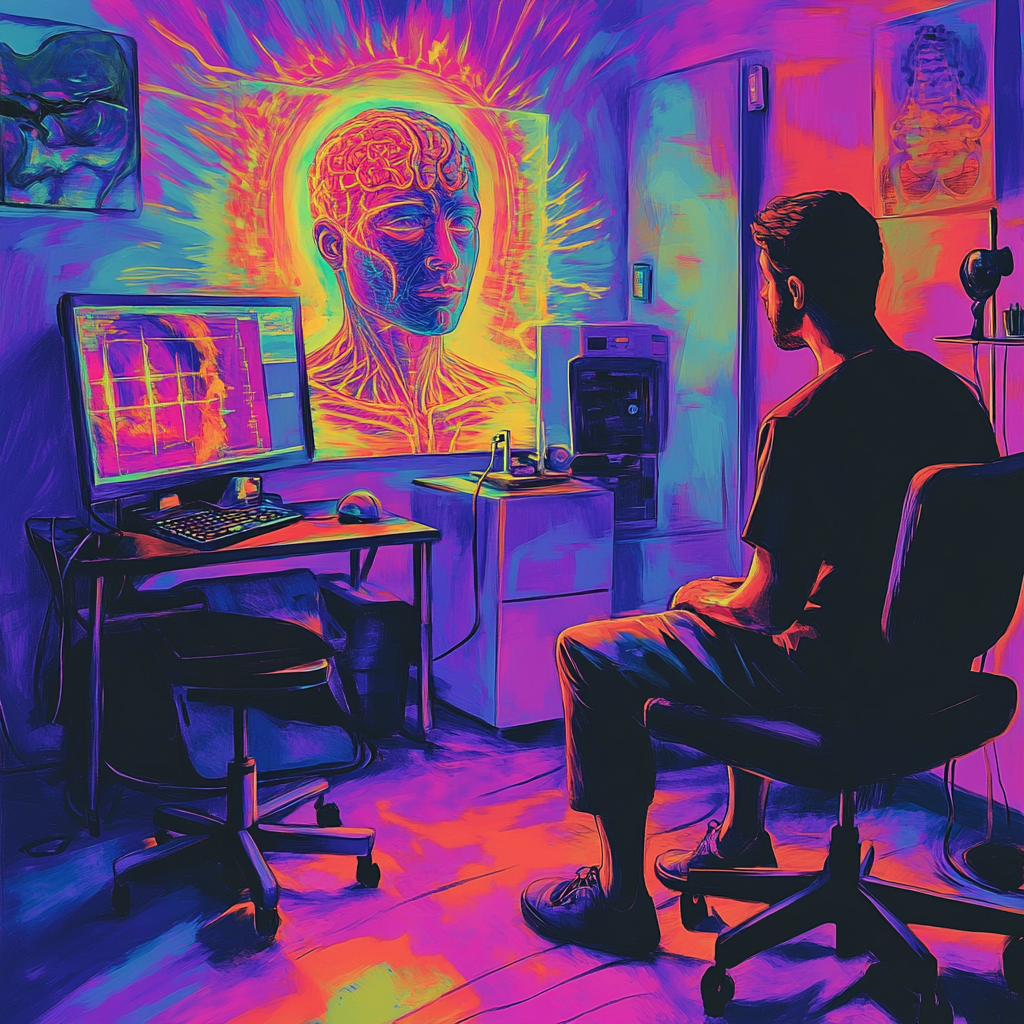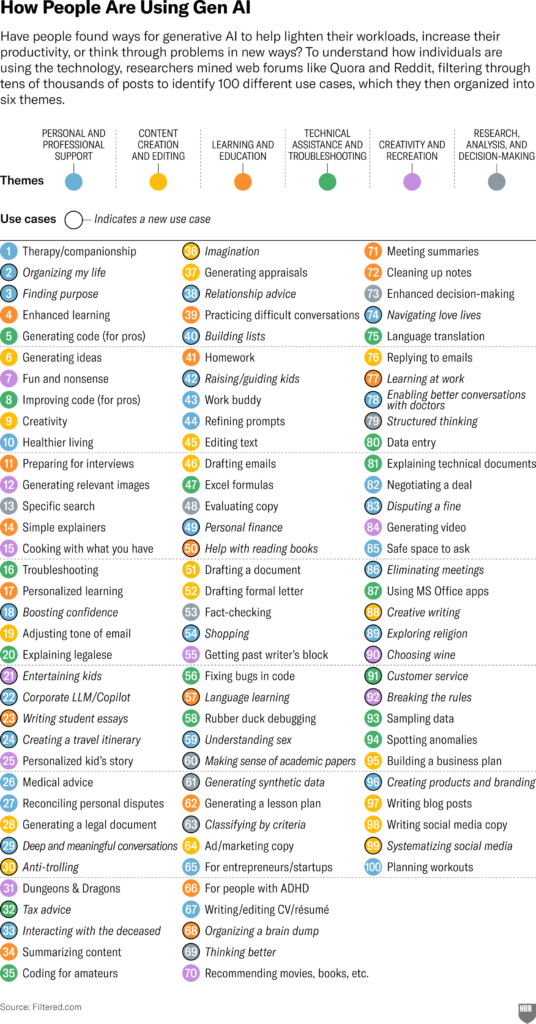
Beyond Automation: Building a Future of Human-AI Collaboration in the Workplace
Explore how human-AI collaboration is transforming the workplace. Discover why combining automation with creativity and empathy leads to greater innovation, pro...
In 2025, people are turning to AI not just for productivity, but for therapy, life organization, and finding personal purpose—revealing a more human dimension to AI adoption.
As someone who builds AI training programs and automation tools for the workplace, I’ve always thought of AI in terms of efficiency, performance, and business outcomes. So when I read the Harvard Business Review
“Generative AI: How People Are Really Using Gen AI in 2025” by Mark Zeo Sanders, it really caught me off guard.
Not just because it was well-researched—based on actual user behavior from platforms like Reddit—but because the top three use cases people are turning to AI for in 2025 aren’t what you might expect.
They’re about being human.
According to the report, Sanders and his team compiled the top 100 real-world applications of generative AI, and what they found paints a very different picture from the standard business use cases I am used to seeing.
Here are the top three:
“Large language models are accessible to everyone… they can help. Data privacy is less of a concern when survival is the morning agenda.” – A user in South Africa
In regions where access to mental health care is limited, AI is filling a crucial role. Not just as a chatbot or productivity tool, but as a non-judgmental source of emotional support and structured therapy. It’s available 24/7, doesn’t need appointments, and provides comfort without stigma. Some studies even suggest that AI-generated responses are approaching the quality of human therapists in specific contexts.
“AI is becoming like a personal assistant at work.” – Jared Spataro, Microsoft
This category is all about structure. From creating detailed cleaning schedules to habit tracking and goal setting, people are turning to AI for mental clarity and planning. Whether it’s through ChatGPT or Microsoft Copilot, AI is being used to reduce cognitive load and manage the practical side of daily life.
Perhaps the most unexpected—and revealing—category. Users are engaging AI to explore their values, set life goals, and get help reframing personal obstacles. It’s like having a personal coach or reflective sounding board always at hand. For many, this means using AI not just to get things done, but to become who they want to be.
These three uses alone indicate a major shift in how people are relating to AI. From functional tool to emotional partner. From data assistant to life coach.
The rest of the list continues to surprise. Some of the most fascinating examples that Sanders includes are:
Each use case reflects an expanding trust and comfort with AI in personal, intimate, even emotionally complex areas of life.
What really stayed with me after reading this report is how our perception of AI is evolving.
In my work, we focus on helping teams become more productive with AI. But this report highlights a parallel trend that’s just as important: AI as a mirror, a helper, a quiet partner in navigating life.
It’s not just about getting more done.
It’s about being more human.
Yes, business use cases like AI for tax prep, document creation, and workflow automation are still growing—and I believe they’ll continue to define a huge part of the AI economy.
But what people want from AI today is often far more personal, reflective, and emotional than we may have predicted.
The report doesn’t shy away from the tensions. It covers:
It’s clear that as AI becomes more integrated into everyday life, the expectations—and the ethical questions—are only going to grow.
This report gave me a new lens on AI. I wrote this blog because, as someone who’s been focused on AI for productivity, this shift toward AI for purpose felt like a wake-up call. People aren’t just using AI to write faster or answer emails. They’re using it to cope, to reflect, to grow.
And in the full Top 100 list below from Sanders, the breadth of these use cases shows a future where AI isn’t just embedded in the workplace—but in the fabric of how we live.
What does this mean for how we design AI tools, train users, or frame the next generation of AI services?
It’s a question I’ll be sitting with.
Maybe you will too.
Source:
How People Are Really Using Gen AI in 2025” by Mark Zeo Sanders. Based on user experiences gathered from online communities including Reddit.
Insights from the podcast discussion of “Generative AI:” by Google’s AI Notebook LM
According to real-world research, the top uses are for therapy and companionship, organizing daily life, and finding personal purpose—showing a shift from pure productivity to emotional and reflective uses.
AI acts as a non-judgmental source of emotional support and structured therapy, especially where access to mental health care is limited. It’s available 24/7 and can provide comfort without stigma.
Yes, people use AI for creating schedules, habit tracking, goal setting, and reducing cognitive load—serving as a personal assistant for both work and daily life.
Yes, beyond the top 3, people use AI for personalized learning, health (like generating meal plans), travel planning, disputing fines, and even interacting with digital versions of lost loved ones.
Concerns include over-reliance, loss of critical thinking, privacy debates, the need for more agentic AI, and rising expectations for emotional intelligence in AI tools.
Discover how FlowHunt can help you create AI solutions for personal and business needs—try chatbots, automation, and more.
Explore how human-AI collaboration is transforming the workplace. Discover why combining automation with creativity and empathy leads to greater innovation, pro...
AI misuse at work isn’t an employee problem—it’s a leadership crisis. Explore why employees turn to AI tools in secret, the risks involved, and how leadership m...
Master LinkedIn influence in 2025 with AI tools: boost your brand, automate networking, and unlock new career opportunities. Learn to leverage AI for content cr...




